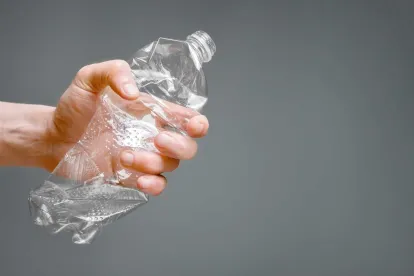With a planned launch date of 16 August 2023, the pressure is on for the Scottish government to deliver the deposit return scheme (“DRS”) for drinks containers. Despite increased scrutiny of industry readiness, Circularity Scotland (“CSL”) reaffirmed on 2 March that the scheme is on track and that producers responsible for more than 95% of containers sold in Scotland had registered with the scheme.
However, as the “go live” date moves closer, there are still challenges around how the DRS will operate in practice. For producers and retailers, who have new legal obligations under the scheme, this raises questions around how to ensure their compliance in time.
In parallel, the scheme continues to face scrutiny, both in the courts by way of judicial review from small businesses, and increasingly from Scottish ministers voicing concerns about the DRS’s potential repercussions on trade. All three candidates for the Scottish National Party (“SNP”) leadership have said they would pause or change the DRS, and the Westminster government is reportedly planning to deny the SNP’s request for a trade exemption under the UK Internal Market Act 2020, which could cause further disrptions. In this short piece, we take a look at some of the issues still facing businesses.
What is a DRS?
The rationale for DRS is to increase recycling rates of drinks containers. An additional deposit (in this instance 20p) is added to the price of a drinks bottle and is paid by consumer at the point of purchase. The consumer can then recover the deposit when they return the empty drinks bottle to a return point to be recycled.
Countries that operate DRS generally have better recycling rates than countries without them. These schemes are strategically important in the UK in the context of the circular economy and will work alongside initiatives like packaging extended producer responsibility and the plastic packaging tax (see our recent blog post here). The Scottish DRS introduces obligations that risk being onerous on some businesses. It will be regulated by the Scottish Environmental Protection Agency and is being administered by Circularity Scotland. It is the first DRS to be introduced after, and to operate alongside, kerbside recycling for the same types of container.
Who is affected by the Scottish DRS?
The Scottish DRS is of general importance to anyone with commercial ties to businesses operating in Scotland. In particular, the scheme will impact drink producers (brand owners, importers or a filler and sealer of scheme containers with a drink at the point of sale) and retailers (anyone marketing or offering for sale) of drinks in Scotland, packaged in a single-use container made from PET plastic, glass, steel or aluminium, sized between 50ml and 3 litres (a “scheme container”).
Producers of drinks for sale in Scotland that are sold in scheme containers have a variety of obligations, including:
-
registering with SEPA to be part of the scheme (either directly or through Circularity Scotland);
-
paying a registration fee;
-
charging a 20p deposit on each item made available for retail sale in Scotland; and
-
arranging for collection of empty scheme containers.
Retail businesses that sells drinks in scheme containers to consumers in Scotland have a number of obligations, including:
-
making sure they sell drinks containers from producers that are registered with the scheme;
-
charging the deposit on each container;
-
various signage obligations in store; and
-
operating a return point for producers, unless exempt.
What sort of issues are businesses facing?
The principle of a DRS is generally supported by industry and by consumers, particularly in light of growing concern around pollution and unsustainable consumption. However, there appear to be practical problems that are yet to be fully considered, and limited time for clarification. For example:
-
There is still only limited public guidance from SEPA, Circularity Scotland and Zero Waste Scotland for producers and retailers. This means that many businesses are unsure how to approach their compliance, especially when they have multiple sites. On the other end of the spectrum, some businesses based outside of Scotland may consider limiting their operations there.
-
How the operation of return points will be split, in practice, between individual retailers and the operators of large sites like transport hubs, shopping centres and hospitals. While it seems the intention of CSL is that the large site operators will provide voluntary return points for consumers, the legal obligation to operate a return point falls on individual retailers. If no agreement is reached between them in time for the hubs to order reverse vending machines, and for the individual retailers to apply for exemptions, these retailers risk non-compliance on the launch date.
-
There are only limited exemptions from the obligation on retailers to operate a return point for scheme containers. The proximity and environmental health exemptions appear to have been awarded to only a small number of premises. There are no automatic exemptions for retailers in moving vehicles like trains, or retailers operating air-side at airports in Scotland.
-
Lack of alignment with the rest of the UK. The schemes in England, Wales and Northern Ireland are unlikely to take effect before October 2025, meaning that Scottish residents may be inclined to purchase drinks in the north of England rather than at home, but these cannot be recycled through DRS in Scotland. In addition, the materials in scope are expected to vary, with Scotland (and likely Wales) including glass, whereas glass will be out of scope in England and Northern Ireland. Inconsistencies between the devolved nations of the UK are likely to be confusing for consumers and may make the schemes less effective overall.
-
Supply chain challenges are also being raised. Scheme containers are meant be labelled with the DRS’ branding. This may present a challenge for importers into Scotland of drinks containers that are designed and manufactured abroad. There is also growing discourse around the effect on the retail prices of the 20p deposit applying to individual scheme articles in multipacks. Whether the deposit is redeemed or not by returning the scheme container to a return point, there will still be a markedly higher price at the point of purchase to be borne by the consumer.
Enforcement approach
Whatever your view on the viability of the Scottish DRS, the launch date is approaching and will give SEPA (and anyone they nominate) broad investigative and enforcement powers. As with any new regime, until the scheme is operational it is uncertain how enforcement will look. However, commentary indicates that SEPA will take a collaborative approach with businesses that are actively trying to meet their obligations in time, so a cautious, proactive approach is well advised.
In the time remaining before the implementation of the DRS, affected businesses should assess how they might be impacted and make plans ahead of time. This could involve, for instance, rolling out staff training on what scheme containers are, ordering signage, and making applications for exemptions where appropriate.
Beyond Scotland
At the beginning of this year, DEFRA, the Welsh Government, and the Department of Agriculture, Environment and Rural Affairs in Northern Ireland published a consultation response about the deposit return schemes in the rest of the UK. While these schemes are still at early stages (and unlikely to begin before October 2025), businesses should be mindful of upcoming legislation and pay attention to how these schemes develop.






 />i
/>i
